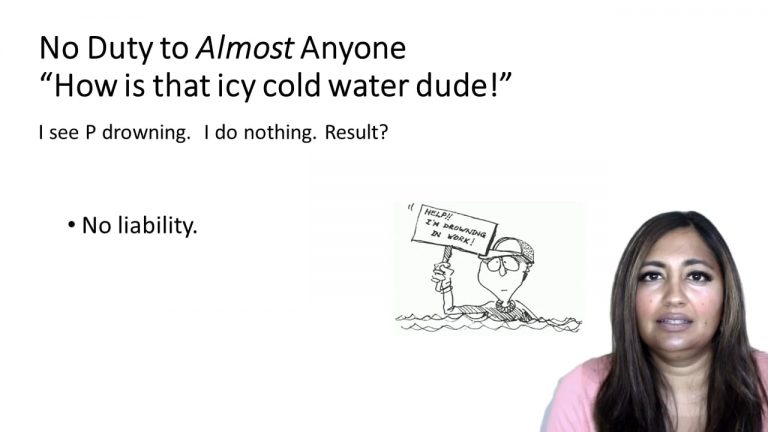SmartBrief
Confirm favorite deletion?
Torts Keyed to Dobbs
Affiliated FM Ins. Co. v. LTK Consulting Servs., Inc.
Citation:
243 P.3d 521 (Wash. 2010)Facts
In May 2004, the monorail blue train of the Seattle Monorail System caught fire after leaving the Seattle Center Station. The train had a full load of passengers. The fire began under the floor of the passenger compartment of the front two cars of the train but soon came through the flooring and engulfed both front passenger cars. Smoke traveled to all four of the blue train’s cars. The red train on the other track stopped to help passengers escape. The red train was damaged by smoke. The cause of the fire was electrical in nature and involved a shaft in the blue train’s motor that had disintegrated causing it to collide with an electrically charged collector shoe.
10 Years prior to the fire, the City of Seattle (“City”) entered into an agreement with Seattle Monorail Services (“SMS) which granted rights to SMS related to the operation of the monorail. The rights granted to SMS included the right to maintain and exclusively operate the monorail system as well as permitted SMS to run concession stands. SMS was also required by the agreement to to collect fares according to an agreed schedule and in return for the rights granted, SMS would pay the City concession fees and charges.
The agreement allocated responsibility for maintaining the monorail among SMS and the City. It required SMS to provide the city with access to the monorail system at all reasonable times in order to inspect, repair, improve, alter, or add to any of the property owned by or under control of the City. Additionally, SMS was required to carry an insurance policy for fire, extended coverage, collision and overturn vandalism, malicious mischief, and other perils and the City was designated as the loss payee.
In 1999, the City contracted with the Defendant, LTK Consulting Servs., Inc., to examine the monorail system and recommend repairs. By 2002, the Defendant had completed its contractual obligations. SMS was not a party to the contract.
SMS and the City amended their agreement following the fire to allocate the costs and responsibility for repairing the damage to the monorail from the fire and smoke. The Plaintiff, Affiliated FM Ins. Co., was SMS’s insurer. The Plaintiff paid $3,267,861 to SMS and was surrogated to SMS’s rights against the Defendant. The Plaintiff then sought to recover damages from the Defendant for SMS’s losses.
Only StudyBuddy Pro offers the complete Case Brief Anatomy*
Access the most important case brief elements for optimal case understanding.
*Case Brief Anatomy includes: Brief Prologue, Complete Case Brief, Brief Epilogue
- The Brief Prologue provides necessary case brief introductory information and includes:
Topic:
Identifies the topic of law and where this case fits within your course outline.Parties:
Identifies the cast of characters involved in the case.Procedural Posture & History:
Shares the case history with how lower courts have ruled on the matter.Case Key Terms, Acts, Doctrines, etc.:
A case specific Legal Term Dictionary.Case Doctrines, Acts, Statutes, Amendments and Treatises:
Identifies and Defines Legal Authority used in this case.
- The Case Brief is the complete case summarized and authored in the traditional Law School I.R.A.C. format. The Pro case brief includes:
Brief Facts:
A Synopsis of the Facts of the case.Rule of Law:
Identifies the Legal Principle the Court used in deciding the case.Facts:
What are the factual circumstances that gave rise to the civil or criminal case? What is the relationship of the Parties that are involved in the case.Issue(s):
Lists the Questions of Law that are raised by the Facts of the case.Holding:
Shares the Court's answer to the legal questions raised in the issue.Concurring / Dissenting Opinions:
Includes valuable concurring or dissenting opinions and their key points.Reasoning and Analysis:
Identifies the chain of argument(s) which led the judges to rule as they did.
- The Brief Prologue closes the case brief with important forward-looking discussion and includes:
Policy:
Identifies the Policy if any that has been established by the case.Court Direction:
Shares where the Court went from here for this case.

 17m 8s
17m 8s